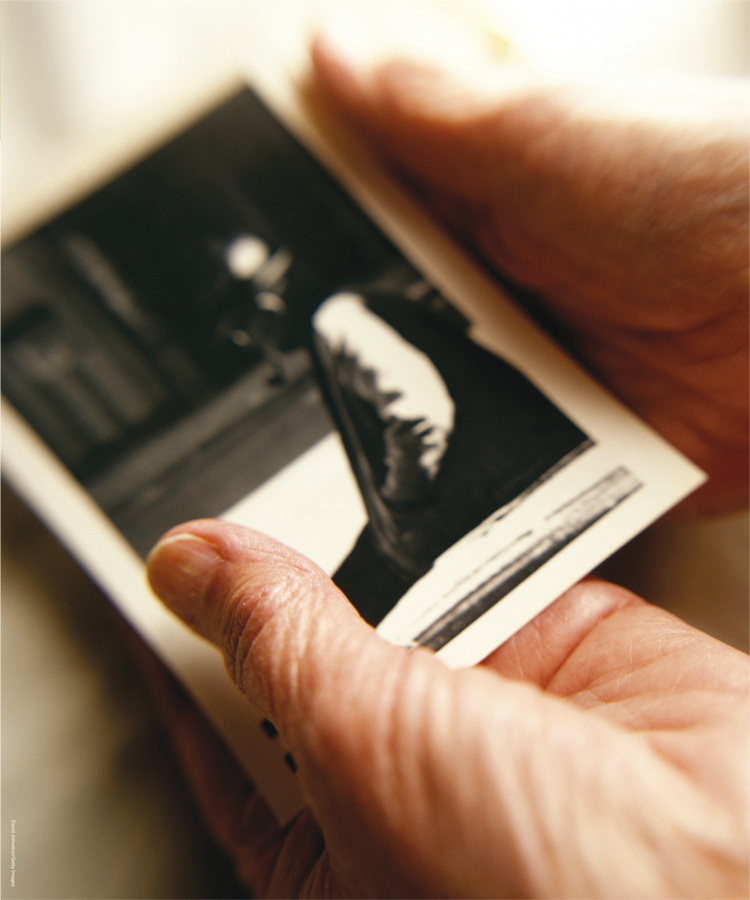Chapter 6 Introduction
6Memory
170

171
 Encoding: Transforming Perceptions into Memories
Encoding: Transforming Perceptions into Memories- Semantic Encoding
- Visual Imagery Encoding
- Organizational Encoding
- Encoding of Survival-
Related Information
 Storage: Maintaining Memories over Time
Storage: Maintaining Memories over Time- Sensory Storage
- Short-
Term Storage and Working Memory - Long-
Term Storage - HOT SCIENCE Sleep on It
- Memories, Neurons, and Synapses
 Retrieval: Bringing Memories to Mind
Retrieval: Bringing Memories to Mind- Retrieval Cues: Reinstating the Past
- Consequences of Retrieval
- Separating the Components of Retrieval
 Multiple Forms of Memory: How the Past Returns
Multiple Forms of Memory: How the Past Returns- Explicit and Implicit Memory
- Semantic and Episodic Memory
- THE REAL WORLD Is Google Hurting Our Memories?
 Memory Failures: The Seven Sins of Memory
Memory Failures: The Seven Sins of Memory- Transience
- Absentmindedness
- Blocking
- Memory Misattribution
- Suggestibility
- Bias
- Persistence
- Are the Seven Sins Vices or Virtues?
- OTHER VOICES Early Memories
JILL PRICE WAS 12 YEARS OLD WHEN SHE BEGAN TO SUSPECT THAT SHE POSSESSED AN UNUSUALLY GOOD MEMORY. Studying for a science test on May 30th, her mind drifted and she became aware that she could recall vividly everything she had been doing on May 30th of the previous year.
Remembering specifics of events that occurred a year ago may not seem so extraordinary—
Now turning 50, Jill can recall clearly and in great detail what has happened to her every single day since early 1980 (Price & Davis, 2008). This is not just Jill’s subjective impression. Memory researchers tested Jill’s memory over a period of a few years and came up with some shocking results (Parker, Cahill, & McGaugh, 2006). For example, they asked Jill to recall the dates of each Easter from 1980 to 2003, which is a pretty tough task considering that Easter can fall on any day between March 22nd and April 15th. Nobody else the researchers tested came close. The researchers also asked Jill about the details of what she had been doing on various randomly chosen dates, and they checked Jill’s recall against her personal diary. Again, Jill answered quickly and accurately: July 1, 1986?—“Tuesday. Went with (friend’s name) to (restaurant name).” October 3, 1987?—“That was a Saturday. Hung out at the apartment all weekend, wearing a sling—

Jill’s memory is a gift we’d all love to have—
172
MEMORY IS THE ABILITY TO STORE AND RETRIEVE INFORMATION OVER TIME. Each of us has a unique identity that is intricately tied to the things we have thought, felt, done, and experienced. Memories are the residue of those events, the enduring changes that experience makes in our brains. If an experience passes without leaving a trace, it might just as well not have happened. But as Jill’s story suggests, remembering all that has happened is not necessarily a good thing, either—
memory
The ability to store and retrieve information over time.
The ease with which someone like Jill can remember her past shouldn’t blind us from appreciating how complex that act of remembering really is. Because memory is so remarkably complex, it is also remarkably fragile (Schacter, 1996). We all have had the experience of forgetting something we desperately wanted to remember. Why does memory serve us so well in some situations and play such cruel tricks on us in other cases?
As you’ve seen in other chapters, the mind’s mistakes provide key insights into its fundamental operation, and there is no better illustration of this than in the realm of memory. In this chapter, we will consider the three key functions of memory: encoding, the process of transforming what we perceive, think, or feel into an enduring memory; storage, the process of maintaining information in memory over time; and retrieval, the process of bringing to mind information that has been previously encoded and stored. We’ll then examine several different kinds of memory and focus on the ways in which errors, distortions, and imperfections can reveal the nature of memory itself.
encoding
The process of transforming what we perceive, think, or feel into an enduring memory.
storage
The process of maintaining information in memory over time.
retrieval
The process of bringing to mind information that has been previously encoded and stored.